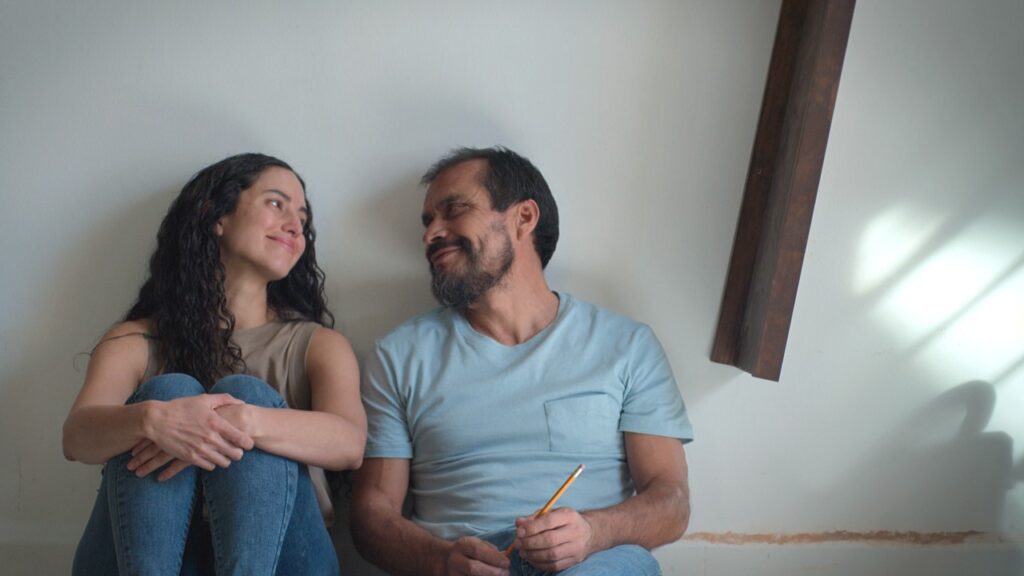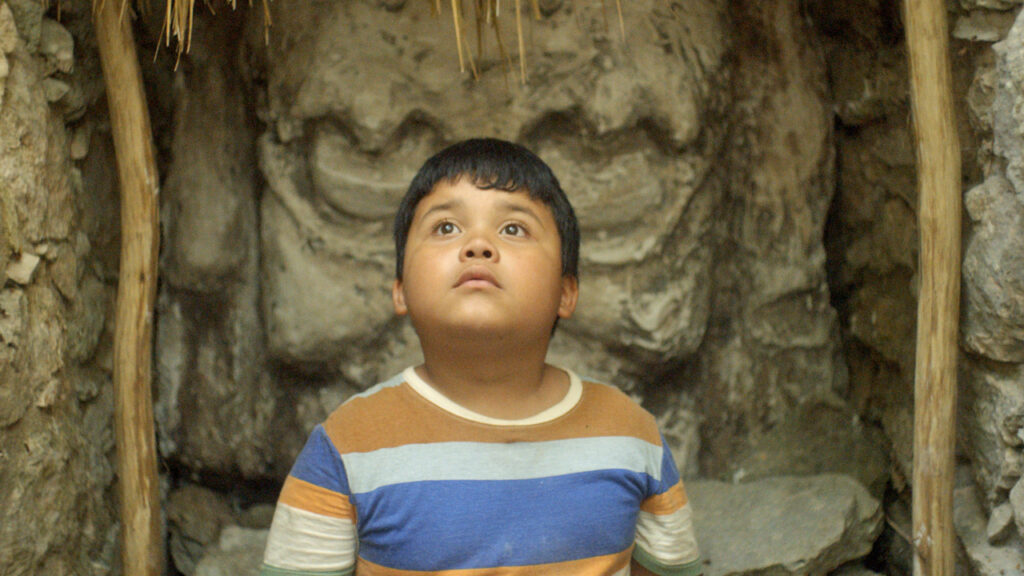
Here are the Cinequest 2025 films that I hadn’t written about yet in my The Best of Cinequest:
- The Move In: In this Mexican drama, a couple moves into a new home and, the first night, think someone has broken in; it turns out to be only the clang of an old window, but it’s a really scary experience, and the man, heading off to defend them, suffers a panic attack. As they unwind from the incident, it appears like they can get past it, but can they? In his first feature, writer-director-producer RS Quintanilla gradually reveals more about the origin and underpinnings of their newish relationship, as the experience makes its mark. It’s a similar premise to Ruben Ostlund’s Force Majeure, but The Move In is more subtle and perhaps even better. This a profoundly clever screenplay, and The Move In is one of the very best films at Cinequest. World premiere.
- Xibalba Monster: In this gentle, 76-minute tale, a pudgy Cuernavaca 10-year-old is sent off with his nanny for an extended visit in her remote Yucatan village. The affluent city kid is now in a poor community, tucked in the jungle with ancient Mayan ruins. He is now among the country kids, who do what kids do, completely unsupervised. He’s not been getting attention or affection from his widowed father, and he’s developed into a watchful, quietly curious kid with a gift for lying when convenient. He’s curious about mortality, and, throughout the story, reminders of death keep popping up – a highway accident, a museum with spooky artifacts, roadkill, a cemetery, local tall tales and more. Still, Xibalba Monster is decidedly not scary and captures the way that kids play and imagine. Adults will enjoy it, as will kids from middle school up. US premiere.
- Boutique: To Preserve and Collect: This infectious documentary is about passion – passion that fuels the preservation and rejuvenation of cult cinema. We’re mostly talking about exploitation movies that would otherwise be lost. Much the credit for saving them goes to Severin Films and Vinegar Syndrome, which are essentially the Criterion Collection for grindhouse cinema. Both companies evolved from aficionados making bootleg tapes of their favorite obscure films into legitimate catalogues of preserved films. You may not think that a certain movie is IMPORTANT, but there is probably someone who finds it absolutely ESSENTIAL. Many movies have been made to be disposable, but have inspired loyal fans. One person’s drive-in may be another’s arthouse. What makes Boutique: To Preserve and Collect fun to watch is the contagious enthusiasm of the devotees. US premiere
- A Little Fellow: The Legacy of A.P. Giannini: Here’s an underdog story – a boy loses his immigrant father, starts out impoverished and builds the nation’s largest bank, helping to rebuild San Francisco after the 1906 earthquake. This very comprehensive documentary also tells the less well-known story of Giannini as movie financier – backing films like City Lights, Gone with the Wind and Sleeping Beauty. LOCAL INTEREST: Giannini’s childhood began in San Jose, his father was murdered in Alviso, and his first bank branch building still stands, only 1500 feet from the Cinequest screening at the Hammer Theatre.. US Premiere.
- Nora: A singer-songwriter (Anna Campbell, who also wrote and directed) leaves the music industry to return to her hometown, along with her precocious six-year-old daughter. Her confidence rocked by her life changes, she is now the new gal in a society run by her former high school classmates. Her feelings are reflected in her songs, dropped in throughout the movie, and Campbell shows a knack for directing music videos. Campbell’s screenplay genuinely captures the vulnerabilities of solo parenting and career change. Two of the characters are unrealistically perfect, but Campbell resists the cliche of having Nora hook up with the guy. The kid actor, Sophie Mara Baaden, is very good. The songs, written by Noah Harmon, are outstanding. World premiere.
- The Bitter Tears of Zahra Zand: Having fled the Islamic Revolution of 1979, recently divorced and going broke, a famous Iranian fashion designer is trying to maintain her former lifestyle in London. She tends to narcissism and extravagance, which makes for character-driven humor. The designer is wonderfully played by Iranian poet Boshra Dastournezhad (so good in Radio Dreams), who co-write the screenplay. It’s basically a remake of Fassbinder’s The Bitter Tears of Petra von Kant.
- 1 + 1 + 1, Life, Love, Chaos: In this awkwardly titled Quebecois comedy, an author suffering from writer’s block takes her on-and-off boyfriend and her teen daughter for a secluded week at her aunt’s country cabin. As she battles with her self-confidence, the situations struck me as contrived in a sit-commy way, but the protagonist’s narration of her inner dialogue is a hoot. World premiere.
- The Courageous: In this Swiss drama, a mom lives on the margins with her kids. She admittedly has no good choices, but she takes increasing risks to provide for the kids. The film is well-acted and well-shot, but it intends to depict the mom as rebellious and individualistic, when she is actually endangering her children’s welfare and long-term futures. Instead of rooting for the mom, audience members will want to call Swiss Child Protective Services.
- The Summer Book: An elementary school-age girl and her father, struggling with the death of her mother, spend the summer at her grandmother’s home on a tiny Finnish island. The grandmother (Glenn Close) always knows the right thing to do or say as the girl heals and comes of age. This is an adaptation of the 1972 novel by Finnish-Swedish author Tove Jansson, which is reputedly a great read. Unfortunately, its literary merit isn’t translated to the screen. Close’s fine performance can’t save this slog. I checked the time after nothing had happened in the first 31 minutes, and decided to keep watching in case it turned out to be the most boring film I had ever seen. That most boring film ever remains Le Quattro Volte, but The Summer Book is a contender.

